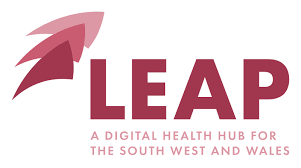SmartADHD
Supported Management of ADHD with evidence-based Resources and Tools
SmartADHD
Supported Management of ADHD with evidence-based Resources and Tools
SmartADHD is a programme of research being conducted in partnership with people with lived experience of ADHD, healthcare professionals, and digital experts. We are working together to co-develop, initially evaluate and implement evidence-based digital resources and tools to support positive management of ADHD in young people. We have a strong focus on tailoring our interventions (such as the SmartADHD app and chatbot) to be suitable for use in NHS settings, and accessible to diverse young people.
The SmartADHD programme of research follows principles of person-centred design, agile product development, and co-production, and has three areas of focus:
Digital healthcare interventions, if developed alongside people with lived experience of neurodiversity, have the potential to improve healthcare for young people with ADHD while being cost-effective for the NHS, and inclusive for currently underserved groups. Young people and primary care professionals have told us that they would value a healthcare app, prescribed via primary care, that provides trusted and curated healthcare information and self-management support.
Our recently completed systematic review confirms that currently no healthcare app exists for young people with ADHD that meets NHS quality standards. By working together with young people with ADHD, healthcare professionals, and digital experts, and harnessing learning from existing research, we aim to co-create an app that will improve usual care for ADHD in an engaging and accessible way.
Research tells us that while digital tools have the potential to improve healthcare for ADHD at scale, there are also risks that some people will find them difficult to access. So, in addition to making sure that in-person support and printed information remains available, we are exploring ways of helping as many young people as possible access digital healthcare.
Early evidence shows that a chatbot, designed to provide information in different languages, and at different levels of complexity, could help to improve digital accessibility, and include people from underserved groups. For example, young people for whom English is not their first language, and those with different communication needs. We will be working together to explore how a chatbot can help address risks of digital exclusion.
Currently, AI will be contained to the chatbot as one tool or section of the app. This means that we are not using AI for the rest of the app or to create information. The chatbot (like you might see on your energy supplier’s website), will condense information from specially-selected evidence-based sources, tailored to the needs of the user, for example being able to translate the information into different languages.
Other uses of AI for the app have been suggested by our lived experience collaborators, such as using AI to provide a summary of a page of information or customising how the information is presented based on user preferences and information. Together with our research advisory groups, we are exploring the potential benefits and risks of integrating AI into healthcare delivery for young people with ADHD, as a part of this programme of research.
SmartADHD has grown directly from the priorities of people with experience of living with ADHD, and the healthcare professionals who support them. The SmartADHD programme of research follows principles of co-production and is guided by lived experience (LE) and healthcare professional (HP) Research Advisory Groups (RAGs) and Working Groups (WGs).
The background MAP study research was approved by the Health Research Authority (HRA) and Health and Care Research Wales (HCRW). Yorkshire & The Humber – Bradford Leeds Research Ethics Committee (REC) (Reference: 22/YH/0132). ClinicalTrials.gov registration number: NCT05518435. Details of ethical approval for delivery of the next phases of this programme of research will be provided here once they are in place.
The SmartADHD programme of research is co-located between the Exeter Collaboration for Primary Care (APEx), and the Children and Young People’s Mental Health Research Collaboration (ChYMe) and being conducted as part of Exeter’s Science of ADHD and Neurodevelopment (SAND) collaboration.
This programme builds on findings from a National Institute for Health and Care Research (NIHR) Three Schools Mental Health Fellowship, held by Dr Anna Price, (MHF008) between 2021-2024, and an NIHR School for Primary Care Research Grant (SPCR640). SmartADHD projects are funded via multiple sources, including the NIHR, UK Research and Innovation (UKRI) Research Councils, and the University of Exeter.




